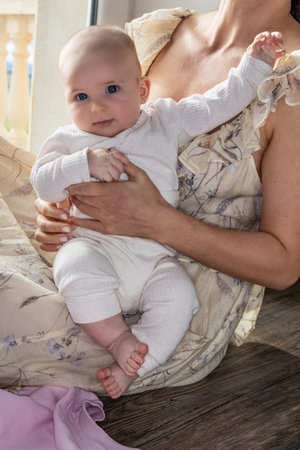Understanding Blended Families in the UK Context
Blended families, also known as stepfamilies, have become increasingly common across the United Kingdom, reflecting broader social shifts and evolving family structures. In essence, a blended family typically forms when one or both partners bring children from previous relationships into a new partnership, resulting in a household that may include step-siblings, half-siblings, and various parental figures. According to recent statistics, nearly one in ten children in the UK is part of a blended family, underlining their growing prevalence. British culture and societal norms play a pivotal role in shaping these families dynamics. For instance, the British tendency towards privacy and understatement can affect how challenges are discussed and addressed within the home. Additionally, factors such as the strong emphasis on politeness and respect for personal boundaries often influence communication styles between teenagers and their new family members. Understanding these unique features is crucial for anyone navigating or supporting blended families in Britain, as they highlight the importance of cultural sensitivity when addressing the everyday realities faced by teenagers in such households.
Challenges Faced by Teenagers in British Blended Families
British teenagers navigating blended family life often encounter a unique set of hurdles that can impact their emotional well-being, social interactions, and educational progress. The complexities of merging families bring about challenges that are both universal and distinctly shaped by British culture, norms, and the education system.
Emotional Obstacles
Emotionally, teenagers may struggle with loyalty conflicts between biological parents and stepparents. There’s often an undercurrent of grief for the “old” family dynamic, coupled with anxiety about fitting into a new household structure. British teens might also face societal pressure to maintain a ‘stiff upper lip’, making it harder to express vulnerability or seek support when feeling isolated or misunderstood.
Common Emotional Challenges
| Challenge | Description |
|---|---|
| Loyalty Dilemmas | Feeling torn between parents or pressured to take sides during disputes. |
| Identity Confusion | Difficulty establishing a sense of belonging within the new family unit. |
| Suppressed Emotions | Cultural tendency to avoid discussing feelings, leading to bottled-up stress. |
Social Obstacles
The social landscape can be equally challenging. Teenagers might have to adjust to new siblings—sometimes from different backgrounds or regions—creating initial friction or rivalry. Navigating peer relationships at school becomes more complicated if friends don’t understand or accept their new family setup, especially as British schools may not always provide tailored support for blended family issues.
Key Social Challenges in British Blended Families
| Issue | Typical Impact on Teens |
|---|---|
| Siblings Integration | Competition for parental attention and difficulties forming bonds with stepsiblings. |
| Peer Stigma | Fear of judgement or gossip due to changes in family structure. |
| Lack of Support Networks | Limited access to specialised school counselling or peer groups for blended families. |
Educational Barriers
Academically, the instability that sometimes comes with family restructuring can lead to decreased focus, frequent absences, or even changes in schools if households are geographically relocated. The UK’s competitive academic environment, paired with high expectations from teachers and parents alike, can amplify stress levels for teens already coping with home life upheaval.
Summary Table: Educational Challenges for British Teens in Blended Families
| Barrier | Potential Outcome |
|---|---|
| Disrupted Routines | Poorer academic performance due to lack of consistency at home. |
| Mental Health Strain | Anxiety or depression impacting schoolwork and attendance. |
| Lack of School Understanding | Difficulties accessing appropriate pastoral care and support services. |
Taken together, these obstacles highlight the importance of understanding and addressing the particular emotional, social, and educational needs of British teenagers living in blended families. By recognising these challenges early on, families and professionals can provide more effective support tailored to the UK context.
![]()
3. Communication Breakdown and Rebuilding Trust
Blended families in the UK often face communication hurdles that can strain relationships, especially with teenagers who are navigating their own emotional landscapes. Miscommunication or lack of trust can create distance between stepparents, biological parents, and teens, leading to misunderstandings or even open conflict. In British culture, where maintaining a “stiff upper lip” or avoiding emotionally charged conversations is common, these issues can become deeply entrenched if not addressed directly.
Recognising the Signs of Communication Breakdown
It’s crucial for British blended families to recognise early signs of communication breakdown—such as teens withdrawing from family activities, monosyllabic responses at the dinner table, or increased tension during routine discussions. Often, underlying issues stem from feelings of loyalty to a biological parent or discomfort with new family dynamics. Left unaddressed, these small cracks can erode trust and make it harder for family members to connect authentically.
Culturally Relevant Solutions to Foster Open Dialogue
To rebuild trust and improve communication, British families can benefit from culturally sensitive strategies. Scheduling regular family meetings—perhaps over a classic Sunday roast or a cup of tea—provides a familiar setting for everyone to share their thoughts without judgement. Encouraging the use of humour, a valued part of British interaction, can also ease tension and help teenagers feel more comfortable expressing themselves. Importantly, adults should model openness by acknowledging their own feelings and mistakes, signalling that vulnerability is not a weakness but a path toward understanding.
The Role of Neutral Third Parties
If barriers persist, seeking support from school counsellors or local mediation services (such as those offered by Relate) can provide a neutral ground for honest conversations. These resources understand the nuances of British family life and offer practical guidance tailored to local challenges—whether its step-sibling rivalry or differing expectations around household rules.
Ultimately, rebuilding trust in blended families hinges on persistent effort and empathy. By recognising unique British tendencies and leveraging them thoughtfully, parents and stepparents can foster an environment where teenagers feel seen, heard, and valued—laying the groundwork for stronger relationships in the years ahead.
Role of British Schools and Social Services
When it comes to supporting teenagers in blended families, British schools and social services play a pivotal role. With the diversity and complexity found in modern UK family structures, these institutions are at the forefront of providing targeted support to ensure that young people thrive both academically and emotionally. This section highlights how schools, local councils, and social services collaborate to address the unique challenges faced by teens in blended families across Britain.
Support Mechanisms in Schools
British schools have developed various programmes aimed at fostering inclusion and emotional wellbeing among students from all backgrounds. Pastoral care teams, school counsellors, and peer mentoring schemes help teenagers navigate the emotional adjustments that come with new family dynamics. These initiatives often involve:
- One-to-one counselling sessions for students experiencing difficulty adapting to a blended family environment
- Group workshops addressing topics such as conflict resolution, communication skills, and resilience
- Liaison with parents and guardians to create a consistent support network between home and school
Role of Local Councils
Local councils across the UK provide additional resources designed specifically for blended families. Through early help services, they offer guidance on issues ranging from co-parenting to managing step-sibling relationships. The table below summarises typical council-provided support:
| Service | Description |
|---|---|
| Family Support Workers | Provide practical advice and mediation for family members adjusting to new roles |
| Parenting Workshops | Offer strategies for navigating common challenges in blended households |
| Youth Clubs & Activities | Create safe spaces for teenagers to socialise and build confidence outside of home |
Social Services: Safeguarding & Advocacy
Social services act as a safety net for vulnerable teenagers, ensuring their wellbeing is prioritised regardless of family structure. In cases where additional support is required—such as safeguarding concerns or mental health referrals—social workers intervene to coordinate care plans tailored to each individual’s needs. They also advocate for young people within the broader system, liaising with educational providers, healthcare professionals, and legal entities when necessary.
Tapping into Available Resources
Navigating the world of British support systems can be daunting, but accessing these mechanisms often starts with a conversation—either through your child’s school or by contacting your local council’s family services team. By proactively engaging with these resources, families can make informed decisions that benefit their teenager’s development and sense of belonging within their new household dynamic.
5. Practical Solutions: Navigating British Family Dynamics
Open Communication as a Foundation
One of the most effective ways to navigate the unique dynamics of British blended families is to prioritise open communication. Encourage all family members, especially teenagers, to express their thoughts and feelings in a non-judgemental environment. Regular family meetings or ‘tea and chat’ sessions can provide a safe space for everyone to discuss issues, from school challenges to home responsibilities.
Addressing Step-Sibling Rivalry
Step-sibling rivalry is a common challenge in UK blended families. To manage this, set clear household rules that apply equally to all children, regardless of biological relationships. Consider creating shared activities that cater to British interests—such as supporting a local football team or participating in a community fête—to foster teamwork and camaraderie. Recognising each child’s achievements, however small, helps build mutual respect.
Managing Holiday Schedules and Traditions
The British calendar is packed with traditional holidays and half-term breaks, which can complicate arrangements between households. Use digital family planners or apps specifically designed for co-parenting to coordinate schedules efficiently. Respect each household’s traditions but consider blending them too; for instance, enjoy both a Sunday roast at one home and a fish-and-chip night at the other. Flexibility and compromise are key.
Supporting Teens Through Change
Teenagers often feel caught between different homes and expectations. Offer them choices when possible—whether it’s decorating their bedroom or deciding on weekend plans—to help them feel more settled. Tap into local support networks such as school counsellors or youth clubs, where teens can talk about their experiences with others who understand the nuances of British family life.
Professional Guidance When Needed
If conflicts persist, don’t hesitate to seek professional advice from UK-based family mediators or therapists who specialise in blended families. They can offer tailored strategies that consider both emotional wellbeing and practical logistics unique to the British context.
By applying these practical solutions, UK families can overcome typical hurdles with empathy, organisation, and plenty of quintessential British patience.
6. Accessing Professional Support and Local Resources
Navigating the unique challenges faced by teenagers in blended British families can feel overwhelming at times. Fortunately, the UK offers a wealth of professional support and local resources designed specifically to help these families thrive. Understanding where to turn for guidance and what services are available is crucial for both parents and teenagers seeking stability and emotional wellbeing.
Helplines Dedicated to Family Support
One of the first ports of call for many blended families is a helpline staffed with trained advisors who understand the complexities of step-parenting and teenage development. Family Lives (formerly Parentline Plus) is a respected UK charity offering confidential advice on all family issues, including stepfamily integration and adolescent concerns. The NSPCC also provides child-focused support, ensuring teenagers have a safe space to discuss their worries anonymously. For immediate mental health support, Childline is available 24/7, offering free counselling tailored to young people’s needs.
Finding Qualified Family Therapists
If your family requires more structured intervention, working with a qualified family therapist can be transformative. The British Association for Counselling and Psychotherapy (BACP) maintains an online directory to help you find accredited therapists specialising in blended family dynamics and adolescent issues across England, Scotland, Wales, and Northern Ireland. Many therapists now offer both face-to-face sessions and virtual consultations, making it easier for busy families to access support regardless of location.
Community Organisations and Peer Support
The power of community should not be underestimated when it comes to supporting blended families. Local organisations like Relate provide workshops, support groups, and mediation services aimed at easing transitions within stepfamilies. Many local councils also host parenting classes and youth clubs that foster social connections among teenagers from diverse family backgrounds. Engaging with these resources allows parents and teens alike to share experiences, learn coping strategies, and build a supportive network close to home.
In summary, while every blended family’s journey is unique, no one has to navigate it alone in the UK. By tapping into helplines, professional therapy, and community-based organisations, British families can access effective tools and compassionate guidance tailored to their specific needs—helping teenagers adapt confidently within their evolving family environments.


